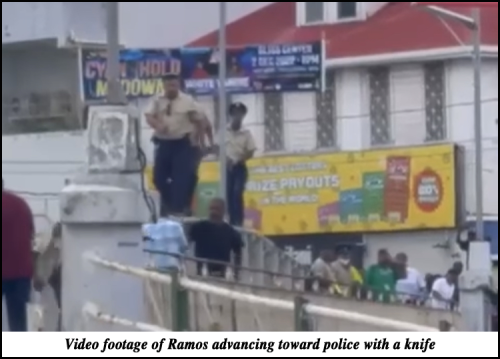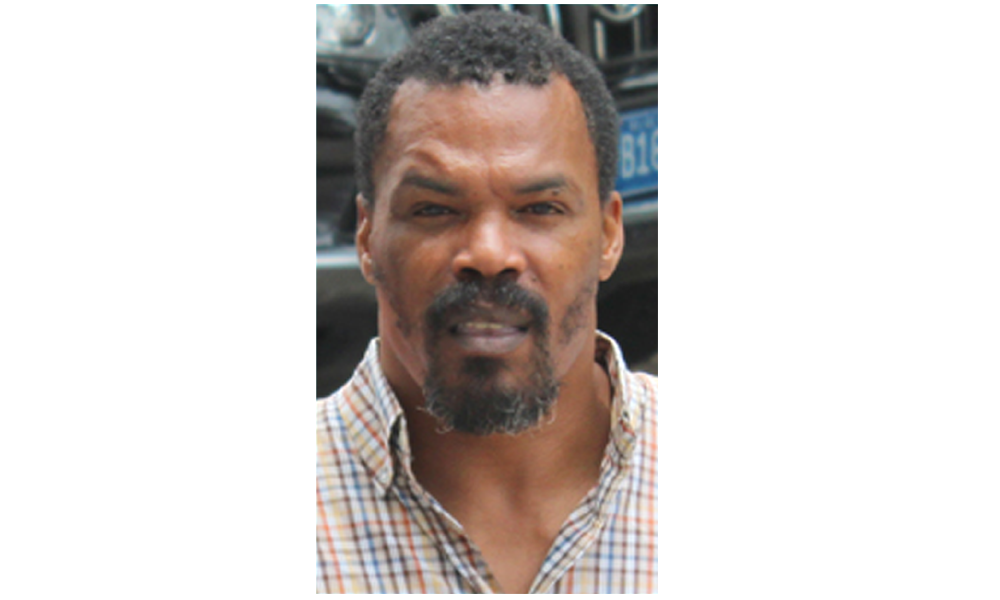Photo: Francis Ramos, Jr.
The association has stated that the shooting of Francis Ramos is a reminder that Belize is in dire need of long-term solutions to deal with those very few mentally ill persons who pose a threat to others and themselves.
by Khaila Gentle
BELIZE CITY, Thurs. Nov. 24, 2022
Belize’s Mental Health Association has issued a public statement in response to the death of Francis Ramos, Jr., who was shot by police on the Swing Bridge in downtown Belize City after charging at them while wielding a knife. According to the association, the shooting brings into focus, once again, the country’s need for long-term solutions to deal with the minority of mentally ill persons who pose a danger to themselves and others.
“Unfortunately, mental illness is rarely a priority and after a few days of finding people to blame, we tend to move on to other issues,” the statement notes.
Ramos, 48, is believed to have suffered from mental illness, and AMANDALA’s records show that he has, on more than one occasion, acted violently toward the public as well as law enforcement. On July 22, 2013, Ramos was sentenced to 7 years in prison after pleading guilty to attempted murder, following an incident in which he stabbed the boyfriend of a relative of his three times some two weeks earlier. Later, in 2021, Ramos was charged with aggravated assault upon a police officer after charging at that officer with a machete. During that incident, he was subdued with a shot to the leg.
Ramos’ final encounter with the police would take place on the morning of Wednesday, November 23, 2022. Police officers had arrived in the downtown area of Belize City in search of Ramos in response to complaints that he had been brandishing a butcher knife at pedestrians. At around 10:00 a.m., they cornered him on the Swing Bridge. Amateur footage of what transpired moments after that has already been circulating across the internet. In that footage, at least eight police officers can be seen surrounding Ramos, three of them standing on the guard rails above him, two behind him, and two more—one in civilian clothing—directly in front of him.

The officers reportedly ordered Ramos to put the knife down several times, but he refused to comply. Shortly after, three warning shots were fired. Those shots brought the hustle and bustle of one of Belize’s busiest areas to a halt, but they did nothing to deter Ramos. Minutes later, he charged at the officers, knife in hand, arms swinging. The officer in civilian clothing fired one shot, hitting Ramos in the leg, and then another, which hit him in the other leg. But Ramos continued charging forward, and that was when a final, fatal shot was fired.
In response to the incident, Commissioner of Police Chester Williams held a press conference at which he defended the actions of the officers. Some members of the public have criticized the police for firing shots in such a heavily traversed area. And other members of the public have questioned whether Ramos’ life could have been somehow spared. The Commissioner, however, maintains that the officers handled the situation as best as they could have.
“If you were in that position, what would you have done? I am not, or I was not, on the bridge to say what I would have done, but certainly, anybody in their right mind is not going to try and aggress an alleged madman with a knife … what would have happened if one of the officers jumped from off the railing of the bridge to where the individual was? It would take one simple move and he would stab and kill the police. Police officers are humans,” Commissioner Williams said.
According to the Commissioner, the police did what could have been done, given the circumstances, and the department has since ordered both a criminal and an internal investigation. When the investigation is completed, the file will be sent to the Director of Public Prosecution’s office for the DPP to determine if she is satisfied that the police had acted in self-defense
Minister of Home Affairs, Hon. Kareem Musa, also spoke on the matter, extending condolences to the family of Ramos. He called the incident an unfortunate one that resulted from very difficult circumstances.
“I’m sure none of those officers woke up this morning and said, ‘You know what, I want to go and shoot someone on Swing Bridge today.’ That’s not what they want to do, but in the circumstances, to protect their own lives and the lives of others, they were forced to do that,” he said.
The Mental Health Association (MHA) has stated that Wednesday’s incident is not an isolated one, and, in fact, there have been far too many that were similar in nature. To lessen such occurrences, the association says that, rather than finding someone to blame, there needs to be proactive solutions that identify those at risk of becoming a danger and those that find treatment regimens to avert future tragedies.
“It is unfair to blame families when there are inadequate resources for them to turn to. There is nowhere that can temporarily house someone who is becoming violent and is resistant to taking medication,” the association’s statement says.
It further notes that the police should not be blamed either.
“As the law currently stands, they cannot detain someone who has not committed a crime, although there is a strong probability that they might do so in the future. Changing the law would require a space to keep such persons. Neither the psychiatric unit at Palm Centre nor at the prison have the personnel or physical resources,” the statement continues.
The MHA is advocating for the establishment of a Psychiatric Forensic Unit in Belize, one that is supported by a “robust legal framework” that will safeguard the rights of individuals and the public. The association has also called for specialized training of police officers to work with mental health professionals to diffuse dangerous situations when they arise. They have stated that they are ready to work with the Ministries of Health, Human Development, and National Security to address the situation by finding funds for a psychiatric unit and the accompanying legislation.

